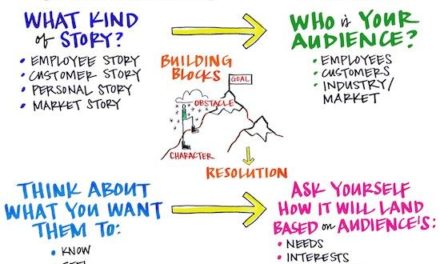
La Cucaracha – Building societal resistance to the fake news flood

By Natasja Beyleveld, Managing Director of NaMedia.
Did you know that the song La Cucaracha is a traditional Spanish folk song – and that it protested government at the time? That’s a lie, according to Wikipedia it’s about a cockroach that can not walk, and nobody really knows what is the origin of this popular Mexican song.
This got me thinking; how many false assumptions or how much ignorance goes around in the arena of public communications? Is this fertile ground for fake news to cockroach its way into public perceptions? Is there room for more creative means to educate the public to be more vigilant at spotting fake news?
We all know that nobody really likes the cockroach, it’s frowned upon. You’d rather be caught in a bra than with a cockroach in your house. Today our homes and any available public space are flooded with cockroach messages, competing for attention. The combined noise is so loud that the whisper of fake news has become very powerful, and never silenced or corrected.
Actively inoculating against the risk of misinformation, becomes a social responsibility. The University of Cambridge created a ‘fake news game’ in which participants were actively tasked with creating a news article about a strongly politicized issue (the European refugee crisis) using misleading tactics, from the perspective of different types of fake news producers.
The preliminary results provided some tentative evidence that playing the fake news game reduced the perceived reliability and persuasiveness of fake news articles. What role could educational games play to better inoculate the public against fake news today?
The Science Daily (14 June 2019) reported that this ‘fake news vaccine’ works. That a ‘pre-bunking’ game reduces susceptibility to disinformation. If we create an online simulator where communicators (journalists, public officials, communicators, leaders) can play the role of propaganda producers, to help them identify real world disinformation – we could increase the “psychological resistance” to fake news. Can you believe we’re having this conversation. I’m like the potato emoji (maybe because we like to fry them).
I completely get that we can originate persuasive BS content and release that into the media galaxy, and that combatting disinformation after-the-fact can be a loosing battle. But if we can expose readers to the weak methods used to spread disinformation (like the Facebook posts about celebrities’ sad stories somehow being linked to the Keto diet!?), they will have a better understanding of how they are deceived. I’ve tested this, it works. Psychologists call this the ‘inoculation theory’ as simulated via the game called “Bad News”. A psychological vaccination.
“Bad News” has been translated into nine different languages, including German, Serbian, Polish and Greek. WhatsApp have commissioned the researchers to create a new game for their messaging platform. I kid you not. What I find useful, is that the team have also created a “junior version” for children aged 8 to 10, available in ten different languages. “We want to develop a simple and engaging way to establish media literacy at a relatively early age”. BOOM!
Furthermore, there are six “badges” to earn in the game, each reflecting a common strategy used by purveyors of fake news: impersonation; conspiracy; polarisation; discrediting sources; trolling; and emotionally provocative content. I obviously tested the tactic of “impersonation”, seen in the mimicking of trusted personalities on social media. We are gullible at times, aren’t we. So let’s marinade the inoculation theory, and do our part in the social revolution (nay education) against fake news. Who likes trolls anyway?
Love
Natasja












































